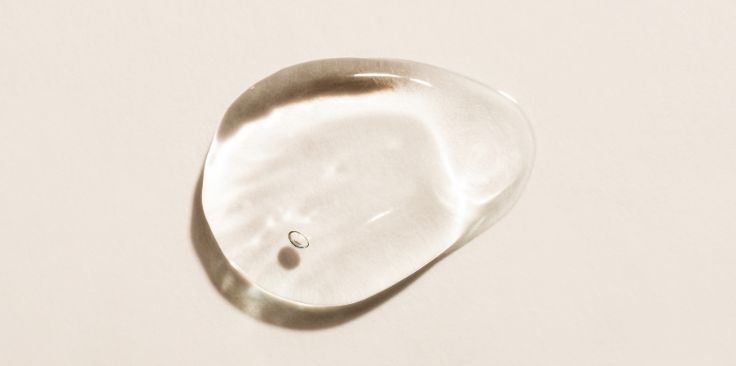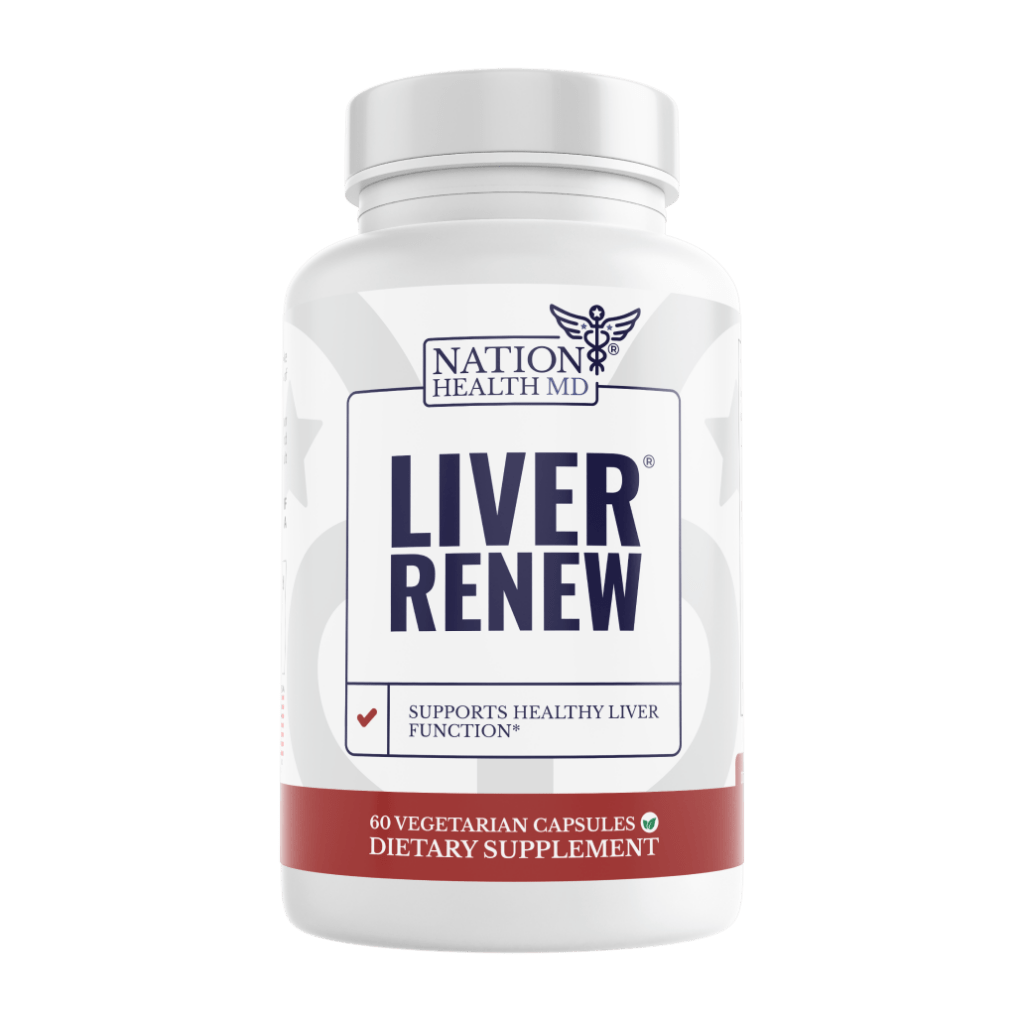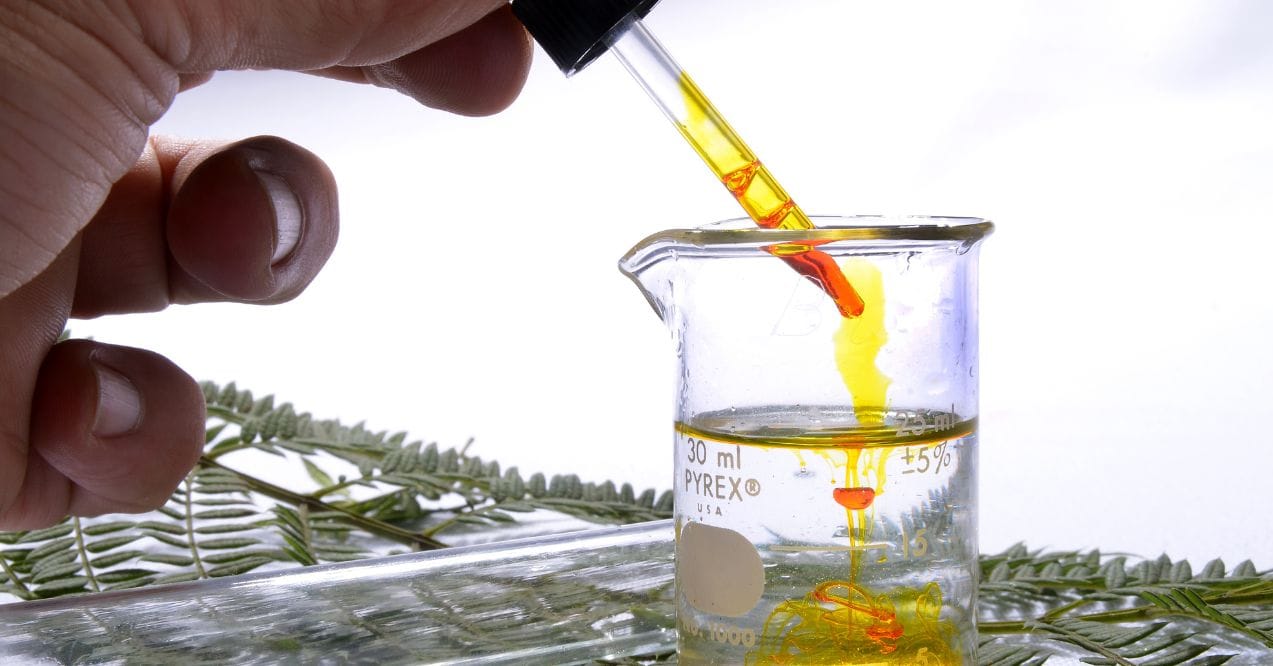Is Glycerin Bad for Your Liver?
Medically reviewed by our experts


You might wonder, is glycerin bad for your liver? Don’t worry. We have the answer to that itching question. Our liver is a vital organ that silently works in the background to keep us healthy. It filters toxins from our blood vessels and produces essential proteins for the body.
Many products use glycerin as an important component. However, scholars and the public have sparked some curiosity about its use. Generally, glycerin is safe because of its massive health benefits to the body.
However, some wonder if it might negatively impact the liver. Public perceptions sometimes differ from scientific evidence. Therefore, it’s important to sort through the confusion by understanding glycerin’s true effect on liver health.
In addition, there are many ways one can go about supporting one’s liver. One such way is with Liver Renew by Nation Health MD. This supplement supports the liver with its combination of nine components. So, is glycerin bad for your liver? We’ll explore the answer in this article.
Key Article Findings
- Side Effects of Excessive Intake: High doses of glycerin can lead to gastrointestinal issues, such as diarrhea and stomach discomfort, due to its laxative properties. These side effects are not indicative of liver damage.
- Liver Support with Liver Renew: Nation Health MD’s Liver Renew supplement contains natural ingredients like milk thistle and turmeric, which help support liver health by providing antioxidant and detoxifying benefits.
What Is Glycerin?
Glycerin is naturally present in fats and oils. Our bodies produce it during fat breakdown. It’s also found in many plants and commercially sourced from vegetable oils.
Glycerin has been a subject of interest due to its potential impact on liver health. Scholars have wondered for centuries about the effects it could have on the liver and its potential burden on the organ.
Overview of Glycerin
Glycerin is also a versatile sugar alcohol found naturally in plant sources. It is commonly used in processed foods and medicines. Even our personal care products contain it!
Glycerin is processed metabolically in the liver after consumption. It is broken down and transformed into a valuable energy source. This metabolic pathway raises concerns about the consequences for liver health.
Safety Profile of Glycerin

Reputable health organizations acknowledge glycerin as safe for human consumption. The U.S. Food and Drug Administration has approved it. Glycerin is converted into glucose for readily available energy through efficient metabolic processes in the liver after entering the body.
However, is glycerin bad for your liver? Moderate glycerin intake does not cause liver damage. On the other hand, extreme dosages can lead to stomach problems due to cramping.
Additionally, headaches and IBS are possible outcomes of high glycerin intake. It can also cause the skin to become red and itch. These side effects settle once glycerin intake is reduced. The small amounts found in foods and medicines are safe.
Potential Concerns From High Glycerin Intake
There is no evidence that glycerin causes direct liver damage. However, gastrointestinal distress may result from excessive glycerin use. This occurs because of glycerin’s laxative properties. As such, excessive consumption may upset your digestion processes. However, these side effects indirectly relate to liver damage. They are a consequence of the laxative properties at high intake levels.
For oral use, glycerin dosage is determined based on body weight. It also depends on the particular medical issue. For example, adult prescriptions for decreasing eye pressure range from 1 to 2 grams per kilogram of body weight. Administration of the dosage takes place every six hours. Children are given doses of one to 1.5 grams per kilogram of body weight. If necessary, they can take the dosages again after a few hours.
Discover the Benefits of “Liver Renew” by Nation Health MD
Our liver is a tireless organ that works around the clock to filter toxins, process nutrients, and support vital bodily functions. However, with the demands of the modern lifestyle, our liver can sometimes use a helping hand. That’s where Nation Health MD’s Liver Renew steps in.
Liver Renew is a nutritional supplement made from a combination of organic components that promote healthy liver function. One of its thoroughly researched ingreients is milk thistle, which has antioxidant and anti-inflammatory properties. The supplement also contains turmeric, which supports the body’s detoxification process. These, alongside several other components, make Liver Renew your finest alternative when it comes to liver function support.
Conclusion – Glycerin and Liver Health Balance
Glycerin has garnered attention regarding its possible impact on liver health. It can be found in medicinal products and processed foods. The liver is where glycerin is metabolically processed. Major health organizations like the FDA and EFSA deem glycerin safe for consumption. So, is glycerin bad for your liver? No, is the concluding response to this question.
However, it has a laxative effect, and consuming too much causes digestive issues. There is no direct correlation between the impact and liver damage. Remember that only concentrated glycerin products could cause adverse side effects if consumed excessively.
Food decisions will help in improving your health. See a medical expert if you have concerns. They will advise you on the potential health benefits of a supplement such as Nation Health MD’s Liver Renew. This supplement contains two powerful natural ingredients: turmeric and milk thistle. These components work together to support liver health and help achieve your optimal wellness.
The side effects result from the laxative qualities of glycerin. You may have diarrhea. Stomach discomforts are also common. You can also have light headaches or suffer from skin irritation.
Glycerin is a sugar alcohol. While they all share some properties, there can be variations in their health impact. Some sugar alcohols, like mannitol and sorbitol, cause more digestive issues than glycerin at similar intake levels. This is because the body does not efficiently absorb them.
Liver Renew contains milk thistle for cellular defense and turmeric for detoxification. Moreover, it also contains dandelion root for promoting bile production. All these ingredients work in conjunction to have a positive impact on liver health.
Ransom, W. B. (1887). On the Influence of Glycerine on the Liver. Journal of Physiology
Lechasseur, A. (2022). Glycerol contained in vaping liquids affects the liver and aspects of energy homeostasis in a sex‐dependent manner. Physiological Reports.
Rd, A. P. M. (2023). What is vegetable glycerin? Uses, benefits and side effects. Healthline.
Sardi, C., et al (2018). Experimental paradigm for the assessment of the non-pharmacological mechanism of action in medical device classification: The example of glycerine as laxative. Frontiers in Pharmacology, 9.
Mayo Clinic. (2024). Glycerin (Oral route).
West, H. (2023). 7 Science-Based Benefits of Milk Thistle. Healthline.
Farzaei, M. (2018). Curcumin in liver Diseases: A systematic review of the cellular mechanisms of oxidative stress and clinical perspective. Nutrients.
U.S. Food & Drug Administration. (2024). U.S. Department of Health and Human Services.
European Food Safety Authority. (2017, March 15). Re-evaluation of glycerol (E 422) as a food additive.
Popular Articles
Advertisement. This site offers health, wellness, fitness and nutritional information and is designed for educational purposes only. You should not rely on this information as a substitute for, nor does it replace, professional medical advice, diagnosis, or treatment. If you have any concerns or questions about your health, you should always consult with a physician or other health-care professional. Do not disregard, avoid or delay obtaining medical or health related advice from your health-care professional because of something you may have read on this site. The use of any information provided on this site is solely at your own risk.














